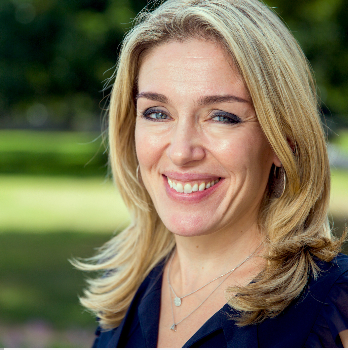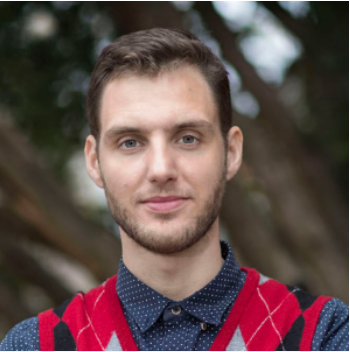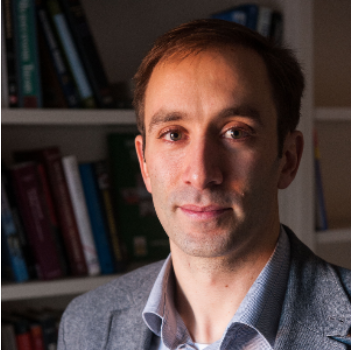Georgetown Main Campus researchers tackle COVID-19
July 23, 2020
Georgetown Professors Anna Johnson and Deborah Phillips of the Department of Psychology are conducting research on Understanding COVID-19 Disruptions to Low-Income Children’s Early Home and School Experiences. COVID-19’s unanticipated shocks to young children’s primary environments – home and school – carry potentially widespread implications for parent and child wellbeing and family functioning. This is likely especially true for low-income families with young children, who are particularly vulnerable to added life stressors.

Johnson and Phillips will augment their ongoing, 7-year longitudinal study of pre-k through 4th grade students in the Tulsa Public School System with two COVID-specific questionnaires administered to parents and teachers respectively. With this data, Johnson and Phillips hope to assess COVID-specific disruptions to prior patterns of family functioning and developmental growth, including cognitive, social, self-regulatory, and health outcomes, parent mental health, and household economic wellbeing. Capturing these contextual changes is essential to informing efforts by school systems, clinicians, and other social service networks to support vulnerable families in the wake of COVID-19.

Abraham Newman, of SFS and the Government Department, and Director of the Mortara Center for International Studies, is examining the consequences of COVID-19 for globalization. This research argues that COVID has revealed the fragility in global supply chains and that states are now exploiting these fragilities for geostrategic ends.
For a sample of Professor Newman’s work, see: Will the Coronavirus End Globalization as We Know It? and Will Governments Restrict Foreign Access to Pandemic Supplies?

Abigail Marsh and her PhD students Katherine O’Connell, Kathryn Berluti, and Shawn Rhoads in the Department of Psychology are working with 1 Day Sooner to understand the traits, values, and goals of volunteers for future coronavirus vaccine trials.
Marsh’s lab has previously conducted research aimed at assessing interpersonal traits that correspond to social distancing behaviors, finding that individuals who reported more unnecessary trips outside the home and maintaining smaller interpersonal distances in April 2020 also report higher levels of antisocial traits, including more social aggression, rule-breaking, and physical aggression. This suggests that the tendency to act in ways that harm the welfare of others is a general risk factor for engaging in behaviors likely to result in disease transmission despite widespread Stay At Home orders, and has implications for targeted public health approaches to reduce the spread of the novel coronavirus.

Shin’ichiro Matsuo is a Research Professor of Computer Science and the Director at Blockchain Technology and Ecosystem Design (B-TED) Research Center.
He argues that in the context of COVID-19 social distancing and stay-at-home orders, creating sustainable societies is a long-term challenge. One tool that can help achieve this goal is contact tracing by using data on the location of individuals. However, there are questions and debates on this direction from privacy and effectiveness viewpoints, thus, providing enough privacy protection and incentives to citizens is essential to solving. He is researching a new direction to provide much incentive to stay at home based on the smart contract, blockchain technology, and privacy-enhancing technology to achieve the goal.
This work was presented at the 4th International Workshop on Cryptocurrencies and Blockchain Technology – CBT 2020. View the abstract video here.

Michael A Bailey, of the Department of Government is exploring Empirical Strategies to Counter Non-Ignorable Non-Response When Estimating Coronavirus Prevalence.
Documenting the prevalence of coronavirus infections is important for understanding and responding to the trajectory of the outbreak. Unfortunately, the tendency to test the sickest people, couple with wide variation in testing rates across geographic areas, makes it difficult to credibly estimate prevalence. While large-scale randomized testing is ideal, it is very expensive and imperfect compliance can make it vulnerable to non-response bias. Bailey’s research explores how to estimate prevalence using first-stage instruments that affect the probability of being tested but not the outcome of the test. First-stage instruments are indispensable when evaluating randomized testing with less than perfect compliance, and in addition they can improve inference based on location-based testing.

Ferdinando Monte with the McDonough School of Business estimates the impact of COVID on geographic mobility in the US using smartphone data. He constructs Mobility Zones, disjoint sets of counties that are connected, directly or indirectly, due to individual mobility. He finds that the average area and population of Mobility Zones grew slightly at the onset of the COVID pandemic, but sharply shrunk thereafter.
Read Fernando’s paper at: Mobility Zones Correspondences for the United States and individual States

Kostadin Kushlev, a member of the Psychology Department who runs the Digital Health and Happiness Laboratory, has been tracking the well-being and social behavior of hundreds of Americans during the COVID pandemic.
In elucidating the hidden emotional costs of working from home, and in light of reports that three out of four CFOs in the United States say that they plan to shift to a permanently socially distant workforce, this research addresses the provocative question of What happens to happiness during a pandemic?
Researchers at gui2de, the Georgetown University Initiative on Innovation, Development and Evaluation, are conducting a variety of studies in East Africa and South Asia on the impacts of and policy responses to the COVID pandemic.

Andrew Zeitlin of the McCourt School of Public Policy is leading a partnership between gui2de and the International Rescue Committee (IRC), that seeks to understand the consequences of the COVID pandemic and associated lockdown for refugees and other vulnerable populations in Nairobi, Kenya. This work, involving two rounds of phone-based survey of over 500 individuals, will inform the International Rescue Committee’s programming to support this population through the pandemic and recovery period.

Jishnu Das of the McCourt School and SFS has been working with governments in India and Pakistan to understand the nature of the Covid-19 pandemic in the context of private and public health and education markets, and to provide advice on testing and management strategies. His work is part of the Global Advisory Council for the state of West Bengal in India.
Listen: Episode 33: The Coronavirus Pandemic: How Prepared is India?
Billy Jack of the Department of Economics is fielding surveys of over 3,000 people in rural Kenya and Nairobi to assess knowledge of COVID, coping strategies, and the disruption the pandemic has wrought on agricultural and business supply chains. His work examines in particular the extent to which mobile money and digital financial products and information services have helped poor Kenyans weather the coronavirus storm.
